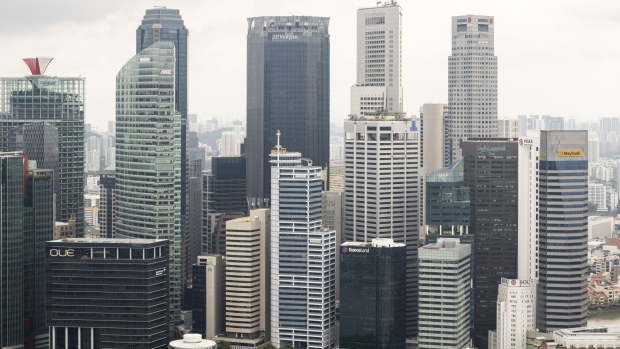Jan 11, 2023
Asia’s Banks See Widening Gap Between ESG Leaders and Laggards
, Bloomberg News

(Bloomberg) -- Asia’s major banks are seeing a widening gap between ESG leaders and laggards, as regulators in the region ramp up scrutiny of sustainable finance, according to WWF-Singapore.
While leading banks in Singapore and Malaysia made headway on implementing their environmental and social risk policies in 2022, over half of the 46 regional lenders surveyed made “little to no progress,” the organization said in its annual sustainable banking report published Thursday. Vietnamese and Filipino banks lagged the most.
This gap is “largely driven by regulation,” Kristina Anguelova, head of Asia sustainable finance at WWF-Singapore, said in an interview. Central banks in Singapore and Malaysia have set out climate risk management guidelines, with climate stress tests planned or underway. Such green policies are prompting lenders to “restructure internally to meet the regulators’ demands,” she said.
The report also found 39% of the banks had committed to net zero financed emissions by 2050, up from 15% in 2021. Most banks in Singapore, Japan and South Korea, including DBS Group Holdings Ltd. and Mitsubishi UFJ Financial Group Inc., have set net zero targets. Few in Indonesia, Vietnam and the Philippines have done so.
Regulators need to act to ensure there are no “loopholes,” Anguelova said. “We want to avoid capital going from a more regulated country to a country that has the least amount of barriers to continue with unsustainable activities.”
More from the report, which covers banks in Southeast Asia, Japan and South Korea, though not China:
- 24% of the banks disclosed palm oil policies in 2022, up from 7% in 2021
- 49% of banks disclosed specific energy sector policies, up from 29%
- 23% of banks disclosed financed greenhouse gas emissions, up from 5%
- 70% of banks offered sustainability-related financial products and services, up from 54%
(Corrects name of organization that issued the report)
©2023 Bloomberg L.P.





